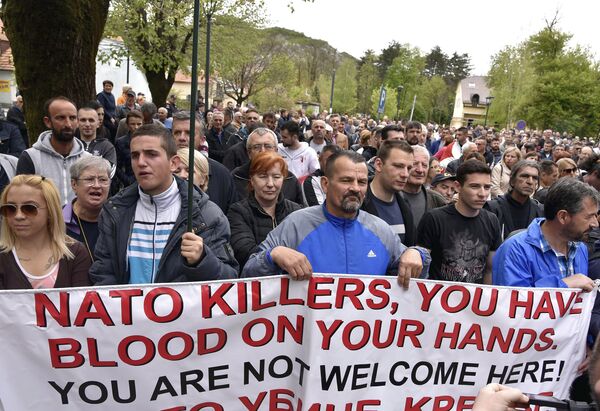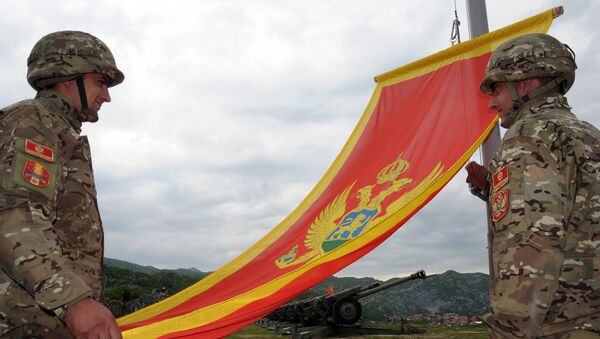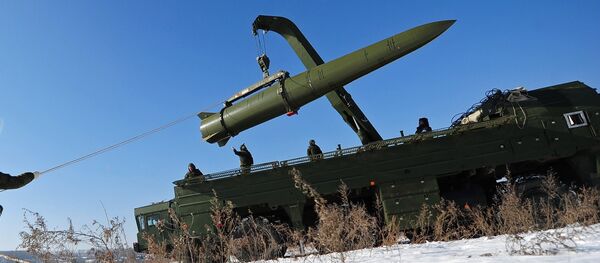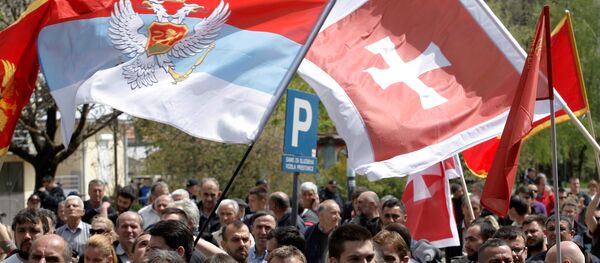The interview came after Russian Foreign Ministry spokeswoman Maria Zakharova said that Montenegrin authorities are attempting to justify the country's NATO membership policy by accusing Moscow of meddling in the country's affairs.
On Sunday, Montenegrin Foreign Minister Srdjan Darmanovic said that Moscow had tried to meddle in his country's internal affairs in order to prevent Podgorica's accession to NATO.

The Foreign Ministry echoes numerous statements from Montenegrin politicians about an alleged Russian threat, Moscow's meddling in domestic affairs, and so on. All these steps were necessary to justify the country's NATO accession in the eyes of the nation," Zakharova told the National News Service broadcaster while speaking about Darmanovic's statement.
She added that the Montenegrin nation did not want to join NATO's ranks, even given the "spy hysteria and defense against a virtual enemy" stirred by local authorities, who made an attempt to suppress the will of the Montenegrin population by making up stories about "the hand of the Kremlin."
Video: Montenegro In: Parliament ratifies NATO membership amid mass protests https://t.co/dOsM0dC2EA pic.twitter.com/kiSw6Nkct4
— rinf_community (@rinf_community) 1 мая 2017 г.
Speaking to Sputnik, Russian political analyst Vladimir Kireyev slammed the position of the Montenegrin Foreign Ministry as a populist stance.
According to him, Montenegrin authorities are trying in every possible way to signal to NATO their desire to break the old ties.
"Historically, Montenegro has maintained friendly ties with Russia, with the two countries linked by ethnic, cultural and religious relations. Right now, Montenegro is also breaking ties with Serbia, which has friendly relations with Russia," Kireyev said.
US President Donald #Trump pushed aside Montenegro’s PM to get to the front at #NATO summit pic.twitter.com/E9yoipKwQi
— Global Times (@globaltimesnews) 26 мая 2017 г.
"The need for Montenegro to break its previous ties is a kind of payment for its joining NATO. But it is worth noting that this is at odds with the interests of the Montenegrin population," he added, referring to tens of thousands of people who had protested earlier against their country's NATO ambitions.
Commenting on the Montenegrin Foreign Minister's accusations against Moscow, Kireyev said that similar allegations on the part of officials could finally cost Montenegro its tourist appeal for Russians.
"I think that our relations will be very complicated. Staying in Montenegro will now be unsafe for Russian citizens because they may be under pressure there. Therefore, Montenegro will lose its tourist appeal," he concluded.
Montenegro was invited to join NATO in December 2015, as part of the first expansion of the 28-nation alliance into Eastern Europe in six years.
Podgorica accepted the invitation on December 3, 2015. However, the government's decision to join NATO triggered mass protests throughout the country.
On April 25, US President Donald Trump signed the protocol on Montenegro's accession to NATO, which was the final step in ratifying the document.
Russia has repeatedly expressed concerns over the further expansion of NATO into the east.
Last month, the Russian Foreign Ministry criticized the political course of Montenegro which sees it joining the alliance without holding a nationwide referendum.
Never miss a story again — sign up to our Telegram channel and we'll keep you up to speed!




